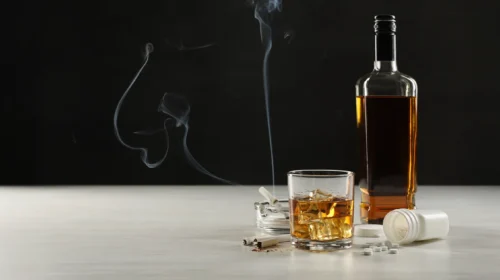It’s a thought that everyone impacted by addiction has had before. What do you do when someone overdoses? Worse yet, what is there to do if someone you love overdoses?
Millions of Americans are still out there actively struggling with drug and alcohol addiction. On top of that, there are millions more in recovery that are still vulnerable to relapse and subsequent drug overdose.
This means that of all of the people you interact with every day, maybe someone is directly impacted by addiction, and the sad and alarming news is that this person might be you.
While relapse is an unfortunately common part of the recovery process, it doesn’t have to mean the end of your recovery. What it does mean, however, is that the possibility of overdose is heightened.
Somebody I Love Just Overdosed
Every year, thousands of Americans walk in on their friend or loved one in the throes of an overdose. This is an undoubtedly traumatic experience that could change the way you look at life forever. Nobody wants to face the harsh reality of addiction, especially if they’ve unwittingly enabled it.
The symptoms of an overdose can vary depending on the substance used and may include difficulty breathing, vomiting, blue lips and fingertips, among others. It’s crucial to recognize that these symptoms could indicate an overdose, but other signs might also be present, and immediate medical attention is necessary.
When you’re caught in a life-or-death situation, it can be hard to keep your head on straight. If you find your loved one experiencing an overdose, here are a few things you should do as quickly as possible:
Call 911
Seek medical help. Getting emergency medical help as quickly as possible is always the first thing you should do in a crisis like an overdose. When you’re on the phone with the dispatcher, provide as much information as possible. This includes:
- If They’re Still Breathing
- The Type of Drugs They’ve Taken If You Know
- How Long It’s Been Since They’ve Used If You Know
- If More Than One Drug was Involved
Administer CPR if Necessary
If the person is not breathing or you cannot find a pulse, begin CPR if you are trained and comfortable doing so, and continue until emergency medical services arrive. If you are not trained in CPR, the 911 dispatcher can instruct you on immediate actions to take, which may include guidance on performing chest compressions.
If you know a loved one is struggling with substance abuse, we highly recommend becoming CPR-certified as an emergency measure. There are numerous online resources for CPR training that you can refer to. Another option is to get certified by taking classes in person through an established program like the American Red Cross.
After ensuring the person receives immediate medical attention, consider contacting Poison Control for further advice on handling the overdose situation, especially if the substances involved are known. Poison Control can provide specific guidance related to the substances ingested, but calling 911 remains the priority in a life-threatening emergency. In a situation like an overdose, there’s no such thing as doing too much to save someone’s life.
Administer Naloxone If Necessary
More and more family members, caregivers, and loved ones are receiving naloxone (Narcan) training in response to fatal opioid overdoses. Naloxone is an anti-overdose nasal spray designed to help those overdosing regain consciousness.
This spray rapidly delivers a single dose of naloxone via a hand-held auto-injector. It is small enough to be carried in a pocket or stored in a medicine cabinet and could save someone’s life.
Stay Calm and Don’t Panic
We understand that this is far easier said than done. The calmer and more articulate you are, the more effective you can be in communicating the situation to medical personnel. This could be the action that could save your loved one’s life.
Overdose is a time-sensitive matter and requires swift, decisive, and focused intervention. Being at your best and calmest may mean the difference between life and death.
What Do I Do Afterwards?
After the chaos and trauma of an overdose, most people are left with a single question: “Now what?”
The tragic reality of addiction is that it takes users and their loved ones to dark places nobody should go to. Too often, addiction takes its victims to the point of no return, and no amount of action can reverse death.
For some, overdose cements the reality of their loved one’s addiction. It also means that loved ones of those in active addiction have to be ready to face the possibility of overdose again.
When it comes to addiction, there’s only one real alternative to death and overdose: recovery. For those still in active addiction, the first step towards a life in recovery begins with treatment.
Treatment at Recovery Unplugged
At Recovery Unplugged, our first priority is to keep our clients from becoming another statistic. We’ve seen the power of music change lives for the better.
We want to use music to help you or your loved one start on the road to recovery. For many, treatment might be the only way to save their life.
If someone you love recently overdosed, we’re here to help you make sure it doesn’t happen again. Contact us today to see how we can support you and your loved one.

























